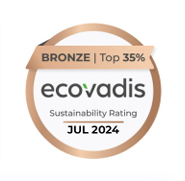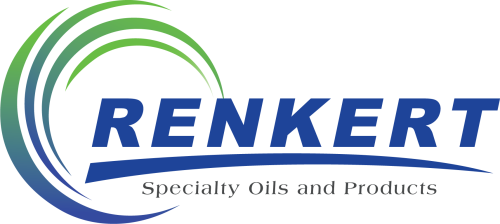In specialty oils, what you can’t see can derail your line. Supply chain transparency—verifiable details from origin to delivery—turns unknowns into knowns so you can manage risk, prove compliance, and keep product flowing. Questions? Contact us.
“Transparency” isn’t a buzzword; it’s a practical way to buy specialty oils with fewer surprises.
Clear documentation of origin, refining, custody, routing, and storage reduces the chance of customs holds, spec disputes, or weather-related delays—and it makes audits and ESG (environmental, social, and governance) reporting far simpler.
Below, we break down what to ask for, how to evaluate suppliers, and a step-by-step plan to get started with logistics and supply-chain support.
Suzanne Kingsbury, Director of Quality
What “Supply Chain Transparency” Means For Specialty Oils
Transparency is end-to-end visibility plus disclosure: documented origin and processing, chain-of-custody, and the willingness to share that information with stakeholders (procurement, QA, regulators, auditors).
For today’s buyers, that includes evidence aligned to due diligence frameworks and reporting standards.
Why It Matters Now
Here are a few examples of how supply chain transparency can be critical to preventing ethical and strategic missteps and business-impacting delays, and where to find helpful guidance:
- U.S. import enforcement: Under the Uyghur Forced Labor Prevention Act (UFLPA), goods linked to Xinjiang—from which some suppliers procure base oils, process oils, and related materials—are presumed made with forced labor unless importers present clear and convincing evidence to rebut. This means deeper paperwork is required on origin and transit. (Renkert Oil does not source any products from Xinjiang.)
- Worldwide due diligence rules and directives: For EU buyers, the Corporate Sustainability Due Diligence Directive (CSDDD) entered into force on July 25th, 2024. Phased obligations will require large companies to identify and address human-rights and environmental risks across value chains. In addition, London-based IPIECA—the global oil and gas association promoting ESG efforts—sets a high worldwide standard for transparent procurement, supplier due diligence, and reporting.
- Severe-weather risk: Supply chain sustainability is about more than environmental concerns—it’s also about long-term security, which Mother Nature can easily disrupt for the unprepared. Gulf storms can temporarily sideline over one million barrels per day of refining capacity and disrupt barge and pipeline logistics—another reason to work with suppliers that document alternates and routing options.
The Business Case For Specialty Oil Buyers
Before the checklist, here’s the payoff in plain terms:
- Fewer disruptions: Early screening for sanctions/human-rights exposure reduces detention risk and line stoppages.
- Spec integrity & audit readiness: Origin and handling transparency supports QA claims in food, pharma, and personal-care use cases tied to reporting like GRI (Global Reporting Initiative).
- Cost control: Better documentation shortens holds and prevents costly rework and returns.
Your Transparency Checklist (What To Request From Suppliers)
Your goal: collect verifiable data that satisfies internal QA and external auditors without slowing your operations.
- Origin & refining details: Country/region of feedstock, refinery ID, date codes/batch numbers, and HTS (Harmonized Tariff Schedule) codes.
- Chain of custody & route history: Bills of lading, packing lists, transshipment points, and carrier records; note detention/demurrage exposure.
- Due diligence evidence: Supplier statements aligned with applicable regulatory bodies and industry-leading ESG advisories.
Most importantly, work with primary and secondary suppliers you can trust to provide any other critical documentation that will reduce potential liabilities.
Tools & Proofs That Aid the Audit Process
Standardizing your “supplier packet” keeps audits quick and consistent.
- Packet essentials: Origin statements, refinery attestations, batch COAs, route and custody logs, and supporting trade docs (BOLs, invoices, HTS).
- Data access: A shared folder or data room for auditors, refreshed quarterly.
- Traceability platforms: Route mapping and document linking from raw material to delivery.
- ESG reporting: If desired for your organization, clear mapping to GRI supplier-assessment disclosures for sustainability teams.
Note: Renkert Oil’s Ecovadis Bronze rating puts us in the top 35% of all rated companies across multiple sustainability categories.

Working with Renkert Oil as Your Specialty Oil Supplier
Renkert Oil pairs specialty oils expertise with hands-on logistics to provide the documentation (including customizable certificates of analysis), routing options, and inventory strategies that keep product moving.
Starting the conversation
Share your required specs, monthly volume profile, delivery windows, and any audit/reporting needs. We’ll confirm available grades and propose stocking/routing options from our extensive logistics network.
Mapping your lanes and backups
We help compress your supply chain (fewer handoffs) and identify alternate lanes (rail, truck, transload, storage) to minimize interruption risk—especially during hurricane season. Going into June–November, we pre-stage inventory, review alternate ports/rails, and communicate schedule pivots so your specialty oils keep flowing even when forecasts change.
Lock in dependable delivery
Our team coordinates railcar and trailer assets and partners with vetted carriers to move bulk oils where and when you need them. We’ll share route history and cadence so your planners can schedule with confidence.
Building your documentation packet
Expect origin/refinery attestations, batch/lot traceability, HTS references, and the trade docs auditors want (BOLs, COAs, invoices). We align packets to your U.S./EU compliance posture so customs checks go faster.
Food-grade confidence, end-to-end
For food/pharma-adjacent buyers, Renkert maintains rigorous programs (e.g., SQF renewal, USP Verified® for white oils) and turnkey FSMA (Food Safety Modernization Act) compliance support—paired with transparent chain-of-custody.
Continuous optimization
We’ll review on-time performance, inventory turns, detention/demurrage exposure, and any compliance updates (CSDDD, UFLPA), then tune safety stock and lanes accordingly.
Bottom Line: You’re In Good Hands
Let Renkert Oil become more than your supplier. We partner with our contract customers, offering supply chain transparency and industry-leading supply security to give you unparalleled confidence.
You can get started right now. Contact us to schedule a consultation today!

